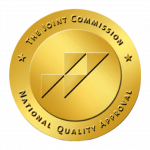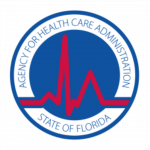I’m only going to try it once, there is no way I will get addicted. I only use occasionally. These are some of the lies people tell themselves to validate their recreational drug use. However, 75% of adults living with addiction in the US report not receiving any form of treatment. How can we tell if an addiction has developed? Have you ever asked yourself, ‘do I have an addiction or can I stop whenever I want?’ Below are the signs that recreational drug use has become an addiction and when to get help.
Warning Signs
The use of recreational drugs, over-the-counter medication, and prescription medication can all lead to an addiction if misused. This can lead to issues at home, school, at work, and in your personal relationships. But, what are the warning signs to look out for that recreational drug use has become an addiction?
There are three types of warning signs to look out for when determining if recreational drug use has become an addiction. These include:
- Physical signs
- Behavioral signs
- Emotional signs
Physical Signs of Addiction
Physical signs of addiction or excessive drug use vary from substance to substance. For many, it can be difficult to notice the warning signs unless they are already aware of the side effects. However, there are many common signs across all substances to look out for, as well as unique ones per substance.
Some of the most common physical signs of addiction include:
- Over-active or under-active
- Repetitive speech patterns
- Dilated pupils/ smaller than usual
- Red eyes
- Sniffling/ runny nose
- Pale
- Weight loss
- Change in eating habits
- Unusual body odor/ lack of personal hygiene
- Change in sleep patterns
- Change in physical appearance
It is important to be aware of these warning signs because if left untreated, they can lead to overdose or death.
Behavioral Signs of Addiction
A big warning sign to look out for that you or someone you know is developing an addiction is a sudden change in behavior. When someone is living with an addiction, it completely consumes their life. They begin to feel unmotivated and begin isolating themselves from family and friends.
Some of the behavioral signs to look out for include:
- Missing work/ school
- Poor performance in work/ school
- Missing important events
- Isolation/ secretive
- Getting into trouble/ legal problems
- Relationship/ marital problems
- Financial problems
- Sudden change in friends/ social group
Emotional Signs of Addiction
Substance abuse has a direct effect on the brain and can change our moods and emotions. Addiction goes hand in hand with negative emotions like depression, anxiety, and anger. The more a person uses the more it alters the brain chemistry. Thus, heightening these negative emotions.
It can be difficult for parents to pinpoint if their child is struggling with an addiction. This is because many adolescences experience frequent mood swings and changes in emotions because of puberty and experiencing life changes. However, this is also a warning sign for addiction.
Some of the emotional warning signs to be aware of include:
- Irritable/ Argumentative
- Defensive
- Anxious/ paranoid
- Unable to manage stress
- Obnoxious behavior
- Easily confused
- Denial of problem
- Irrational
- Easy to put blame on others
- Quck diversion when it comes to substance abuse
- Moodswings
- Lonely/ sad/ angry
- Spaced out
- Suicidal thoughts
Get Help Now
Getting help for a loved one who is struggling with an addiction is hard, especially if they aren’t ready to quit. However, understanding the warning signs that recreational drug use is becoming an addiction is important. It can save your loved one’s life. If you are looking for a treatment center to help your loved one fight their addiction, contact the Harm Reduction Center.
HARC is a private healthcare facility that provides highly individualized programs for each client and their needs. They offer all levels of care, including services to help friends and family better support their loved one who is struggling with addiction. Help your loved one take their first step to recovery!














